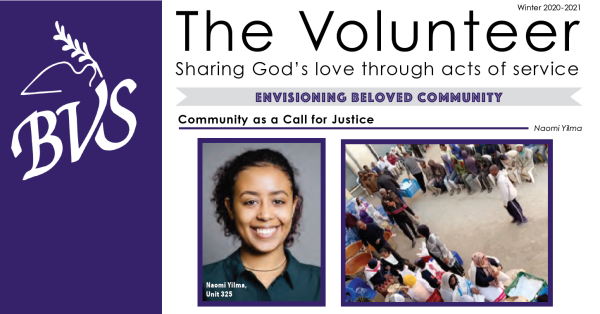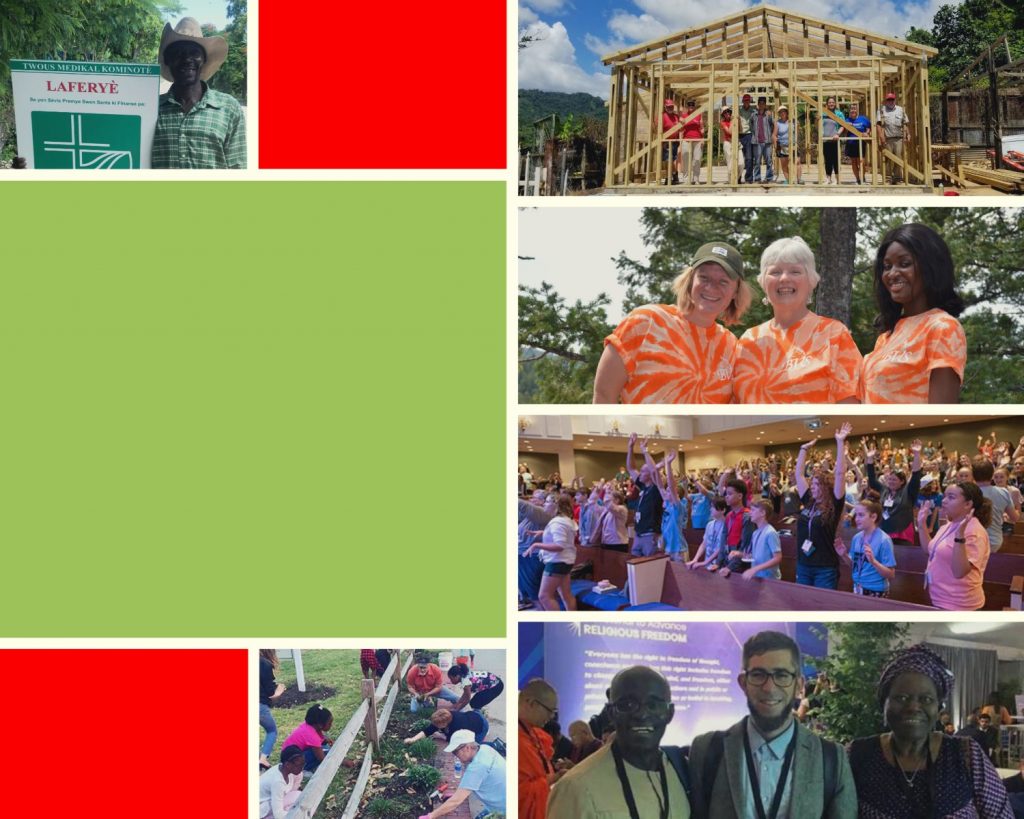I have done a lot of growing in
this year of service.
And no, it’s not the kind of growth that takes place with a background of sunshine and rainbows and peppy music, but the hard, achy kind of growth. Still I walk around with these growing pains, sitting with questions that push at my own personal perceptions of peacebuilding, service, and what it means to actively build the kind of peace that mandates liberation for all.
Earlier in the year, I wrote about the struggle of maintaining resolve in the face of what seems like a stagnant, and in some cases regressive, time in our political climate. In the time that since that piece, I know that my resolve has weakened, and naturally, anger was poised to take its place. COVID-19 ripped back the curtain on the various systemic problems in the U.S and worldwide, and police brutality and racial injustice were once again cast into the limelight (with the help of live social media documentation of a phenomenon that is as old as the institution of policing itself).
In bearing cognizance of my anger
and the ire that burns hot in my belly, I wondered what to do with this fire.
After getting tired of letting it burn me out and leaving me weak, through the
help of Audre Lorde, I came to realize its refining power. Through her words, I
came to see the malleability of anger and its ability to be used as a powerful
source of energy, and I utilized its energy for reflection.
Left to focus on the intent and motivation behind my work as opposed to the outcome -because the outcomes were increasingly unfavorable- I became aware of how little time and reflection I had devoted to this endeavor. As the observatory lens turned away from what change we could effect and towards the why and the how, I was awash in the light of the selfishness of my approach to service. There I sat, questioning why I was doing this work, and not being thrilled with the answers.
I noticed that my approach to this
work centered the things I thought would be beneficial to the demographics that
I was advocating for; it didn’t center their own needs, wants, and aspirations,
and this was a glaring problem. This was something that I also noticed in various
of the spaces that I interacted with while in this position, and I felt
comfortable in my criticism of these spaces but remained oblivious to my
complicit conceptualization of the very same service that I was engaged in.
It soon became obvious that I needed to look at my motivations for service, first and foremost, as an act of service to those that I am in-service of. I needed to make “basic and radical alterations in those assumptions underlining” why I serve as a peacebuilder, and in utilizing the refining fire of anger, I called out my own biases and began the process of reconstructing my perceptions and motivation around service and peacebuilding. This is an ongoing process, and I hope that it only ends with a world where ALL can grow, because we are not free until the most marginalized within our world is free.
This year has been one of
learning and aching, and I gleefully rejoice for the work that I have been able
to do on myself while actively in service of others. I came into this position
with a reservoir of resolve and energy, and that reservoir has been severely
depleted. However, I see this not as a bad thing, but as a necessary
pre-condition to the work of understanding the assumptions around why I serve,
and what the larger implications of my actions are for the well-being of demographics
in which I have an active interest.
I know that in what should be a
blog post about the work done in service of others this year, I have spoken
more so about myself.
I think that is the point.
Service is a necessary, worthwhile, and laudable endeavor, but doing the work of examining why we serve is an act of service in and of itself. This year has helped to clarify my hazy assumptions and preconceived notions about what it means to truly be in service of others, and in that way has strengthened me as a peacebuilder. This work, for me, took place within my year of service, and while I am thankful that working at OPP provided me the conditions to come to this realization, I am cognizant that this is work that should be intentionally done by all who serve others, in all avenues and capacities.
I am better peacebuilder for working at the Office of Peacebuilding and Policy; its been a tumultuous year, but I believe that this refining process has instigated in me a process of discernment that is of paramount importance when working in service of others. I plan to head to Bethany Theological Seminary in the Fall to gain a Masters in Peacebuilding, and I hope to tailor my projects and reading materials to study theology from the perspective of African American Liberation Theology. Afterwards, I intend to continue in the vein of peacebuilding, because this is necessary work.
*Quote from Audre Lorde’s “The Uses of Anger”




